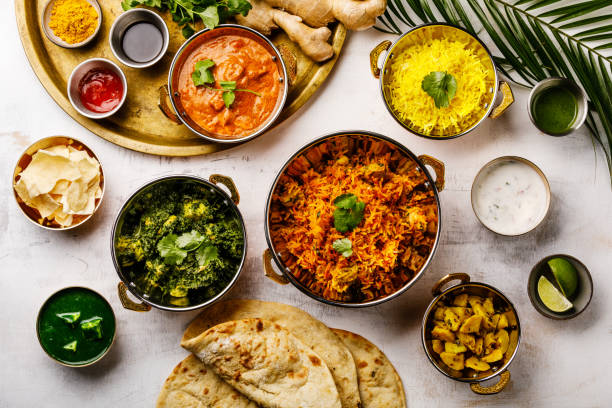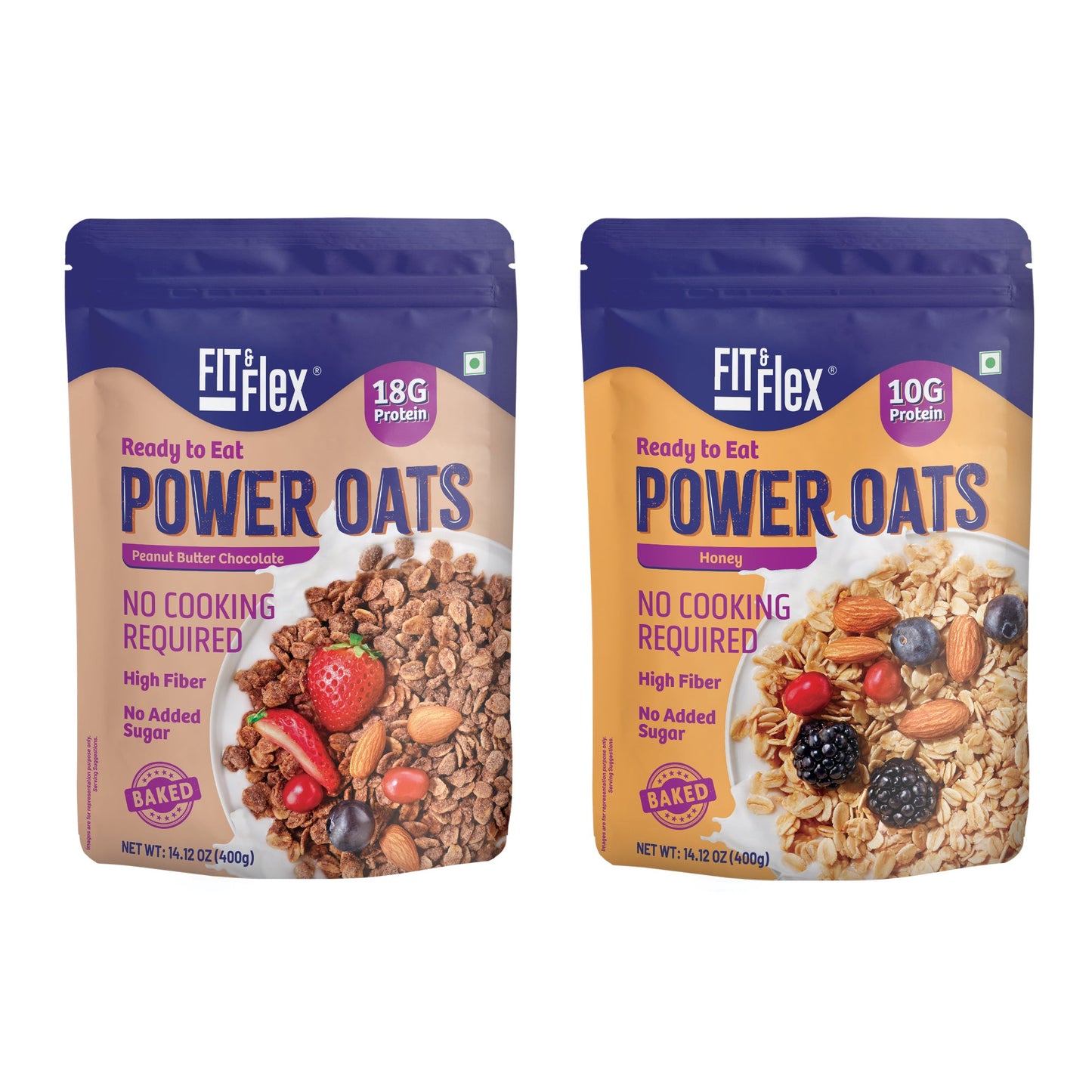Healthy Indian Foods: Foods You Should Eat For A Healthy Lifestyle!

Healthy Indian Foods
Many people struggle to find healthy and convenient food options daily. It is arduous to create the ideal healthy Indian diet. Because of the wide range of climate and food availability, no single diet plan can satisfy everyone. This problem gets exacerbated by the fact that certain foods may be inaccessible due to medical conditions. Furthermore, vegetarians are limited in their options.
Indian foods are typically high in oil, ghee, and spices, making them less healthy; however, what if we told you that some of the best healthy Indian foods are both flavorful and nutritious? These are a daily staple that you can eat throughout the day to help you manage your weight like a pro! These foods are also very healthful and will assist you in reaching your health objectives.
Healthy Indian Foods You Should Eat For A Healthy Lifestyle
Purchasing healthy, nutritious food does not simply imply that you will be eating delicious dishes. When you eat wholesome foods, you help improve your overall health. Whether it’s muscle building, mental sharpening, or heart-strengthening, each of the below-mentioned 20 healthy, most nutritious foods, typically made in India, possesses unique health-promoting properties that can help you live your healthiest and happiest life.
1. Pulses & Legumes
Pulses, beans, and legumes are the healthiest Indian foods available! They are not only high in nutrients but also high in protein. Because vegans and vegetarians cannot consume animal protein, legumes and lentils are excellent sources of protein. They are also high in vitamins and aid in the growth of the body as a whole. Pulses also aid digestion and are an excellent food choice for people with diabetes.
2. Buttermilk
Buttermilk, also known as chaach in India, is a popular drink, particularly during the summer. It gets made from yogurt that has been spiced and salted. It is typically served cold and is excellent for digestion. Buttermilk also hydrates the body and regulates body temperature.
3.Yogurt or Curd
Yogurt, curd, or Dahi (known in most parts of India) remains one of the most widely available foods. Yogurt contains beneficial bacteria that aid in digestion and keep us healthy. It also has high calcium, potassium, and vitamin B content. It’s well-known for being high in calcium, a mineral required for strong teeth and bones. Yogurt contains a significant amount of protein. Some yogurts contain live bacteria, also known as probiotics, that were either part of the starter culture or added after pasteurization. Consuming yogurt regularly, if it contains probiotics, may help to strengthen your immune system and reduce your chances of getting sick.
Related Blog: What Are The Benefits Of Yogurt And Granola?
4. Leafy Vegetables
Green leafy vegetables are already common in Indian cuisine. They should, however, get used more frequently. These vegetables are high in iron, vitamin K, and other essential minerals and nutrients that aid in preventing a variety of diseases, including cancer. Mustard greens and kale are both cholesterol-lowering foods. Leafy vegetables improve vision health by lowering the risk of cataracts and increasing the distance you can see. Leafy vegetable aid in the production of energy in your body. The slightly bitter taste of many leafy greens is a good sign – it indicates that they are high in calcium.
5. Rice and Flour
Our bodies require insoluble fiber to help them eliminate waste. So if constipation is a problem, rice and flour – brown rice flour – may help, as may nuts, beans, and vegetables such as cauliflower and potatoes – all of which are high in fiber. Rice and flour are high in protein and have a higher concentration of B vitamins. Dietary fiber is an essential component of any diet. Rice contains insoluble fiber, which aids in the passage of waste through the intestines.
6. Paneer
Perhaps it’s common knowledge by now, but paneer is a good source of protein, especially for vegetarians who don’t get their protein from meat. Because paneer gets made of protein, it releases energy slowly in the body, which does not cause a spike in blood sugar levels or provide an instant boost that quickly fades. Aside from being high in protein and calcium, paneer is high in conjugated linoleic acid, a fatty acid that aids in weight loss by increasing the body’s fat-burning process. It protects against bone diseases such as osteoporosis, joint pain, and tooth problems such as tooth decay and gum disease.
7. Spices
Most herbs and spices are also higher in antioxidants than fruits and vegetables. Cinnamon has an anti-diabetic effect, and it also lowers blood sugar levels. On the other hand, turmeric contains curcumin – a powerful anti-inflammatory compound. Ginger has anti-inflammatory and nausea-relieving properties.
8. Garlic
Garlic is not only delicious but is also known for its numerous medicinal properties. It is a primary source of antibacterial agents found in nature. Garlic contains Allicin, a compound with powerful medicinal properties. Because of the antioxidant properties of Allicin, consuming garlic daily (in food or raw) helps to lower cholesterol levels. Garlic’s invigorating properties protect the skin from free radicals and slow the depletion of collagen, which leads to loss of elasticity in aging skin.
9. Ginger
According to researchers, gingerols – antioxidant, anti-inflammatory, antibacterial, and anti-disease compounds – get credited with ginger’s health benefits. Studies suggest that ginger may alleviate arthritis symptoms, improve cholesterol, and prevent cancer. It has been used for thousands of years to calm upset stomachs and aid digestion.
10. Chilies
Chili has up to seven times the vitamin C content of an orange. It offers several health benefits, such as fighting sinus congestion, aiding digestion, and the relief of migraines, muscle, joint, and nerve pain. Chili has long been used to reduce food micro-contamination and remains a metabolism booster for weight loss. It may also be helpful in the treatment of lung and prostate cancers, as well as leukemia.
11. Fruits
Many traditional Indian fruits are beneficial to your health. Seasonal and perennial (all-year) fruits such as apples, oranges, blueberries, pomegranates, papayas, pineapples, and so on should get consumed regularly. Fruits contain many essential nutrients, which remain underutilized, such as potassium, dietary fiber, vitamin C, and folate (folic acid). Most fruits are low in fat, sodium, and calories by nature. When you eat fruits, your energy supply quickly increases; this is one of the primary benefits of fruits that we can use in our hectic schedules. Fruit’s fiber content not only has a fantastic laxative effect but also makes you feel full by adding bulk nutrition to the diet.
Related Blog: List Of Seasonal Fruits In India And Their Benefits
12. Dry Fruits
Dried fruits typically contain more fiber than the same-sized serving of fresh fruits. Fiber aids in the smooth operation of your digestive system. Dry fruits and nuts, a great way to prevent cardiovascular problems, help lower the risk of coronary heart disease. Dry fruits are an essential part of your daily diet because they help keep your cholesterol levels in check. Because water gets extracted from dried fruits, the nutrients get concentrated into a small package. Apricots, raisins, prunes, and figs are high in beta carotene, vitamin E, niacin, iron, magnesium, potassium, and calcium.
Related Blog: List Of Dry Fruits And Their Benefits
13. Carrots
Carrots are high in vitamin A, vitamin C, vitamin K, potassium, and fiber, and that’s just the beginning of their nutritional value. The compound that gives carrots its orange color, beta-carotene, has been linked to a lower risk of developing certain types of cancer. According to researchers, beta-carotene and alpha-carotene are carotenoids that our bodies convert to vitamin A, essential for immune function, cell maintenance, and activating carcinogen-metabolizing enzymes.
14. Sweet Potatoes
A large sweet potato contains approximately 4 grams of protein, 25% of the day’s fiber, and 11 times the recommended daily intake of vitamin A, which has cancer-fighting properties.
15. Onions
Onions are high in quercetin, a flavonoid that boosts blood flow and activates a protein in the body that helps regulate glucose levels, burns stored fat, and prevents the formation of new fat cells. Onions are the absolute star of cardiovascular health – a wellness area for everyone, but for those who work out hard to speed up their weight-loss efforts. The culinary staple can help lower cholesterol, prevent artery hardening, and maintain healthy blood pressure levels.
16. Beetroots
These ruby-red roots contain betaines, a type of antioxidant that aids in the repair and regeneration of cells in the liver, your body’s primary detox organ. Beets are also high in immune-boosting vitamin C, fiber, and essential minerals such as potassium, which supports healthy nerve and muscle function, and manganese – beneficial to your bones, liver, kidneys, and pancreas.
17. Eggplant or Aubergine
The anthocyanins and flavonoids that give eggplants their distinctive color will provide you with a slew of health benefits. Obesity control, diabetes control, cardiovascular disease prevention, and improvement of visual and brain functions such as sharper short-term memory and reduced inflammation are among the benefits.
18. Eggs
Eggs are an excellent source of low-cost, high-quality protein. Giving young children one egg per day for six months, along with a diet low in sugar-sweetened foods, may help them reach a healthy height and avoid stunting. Eggs are high in cholesterol, but they have no harmful effects on blood cholesterol. They are high in betaine and choline, two nutrients that promote heart health.
19. Beans
Beans are beneficial to more than just your heart. They’re high in proteins, antioxidants, vitamins, and minerals, all of which can benefit your brain and muscles. Not to mention that they digest slowly, which can make you feel fuller for a long time and fuel your weight loss efforts without making you feel deprived.
20. Nuts & Seeds
Nuts and avocados are high in heart-healthy fats. Flaxseeds are nutritious at any age, but they may be beneficial as you get older. It helps lower high blood pressure, lowering your risk of having a heart attack or stroke. A handful of raw pepitas or dry roasted pumpkin seeds can provide a natural energy boost to help you power through a workout. They contain manganese, magnesium, phosphorus, and zinc, which provide additional energy support to maximize gym time. And also a good source of protein, healthy fats, and fiber, keeping you feeling full and energized for longer.
Summary
It is not an impossible task to eat healthily. The keyword here is balance. You must balance your food intake and stick to your diet as much as possible. If you believe that Indian food cannot be healthy, you are most likely mistaken. The following is a list of healthy Indian foods that you can eat daily to improve your health. Begin eating right and say hello to a better way of life! Also, try to get some exercise during the day. Exercising will aid in the removal of excess fat and calories from your body. So, remember these 20 must-have Indian food items the next time you plan your diet to help you maintain a healthy diet.
Fit & Flex Granola, with fiber-rich nuts and seeds, berries, fruits, and nourishing oats, becomes one of the healthiest foods to consume and tasty too. It keeps you energized all day long and becomes one of your most potent breakfast or snack option. Slow-baked and crunch, Fit & Flex Granola is the optimum choice and refreshing for your taste buds too. If you want to shop for Fit & Flex Granola, you can do it right here Click here to Shop for Fit and Flex Crunchy Granola Online.




